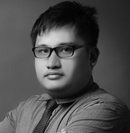The 2025 midterm elections are surely going to be an election like no other with new alliances and alignments sure to shake up the country's electoral landscape.
The shakeups began with a tremor in May 2023 when allies of Speaker Martin Romualdez—a first cousin of President Marcos--demoted Pampanga Rep. Gloria Macapagal-Arroyo from Senior Deputy Speaker to Deputy Speaker, a move that was triggered by rumors of possible leadership coup by Arroyo.
This would cause Vice President Sara Duterte — one half of the UniTeam that won high office in 2022 and who saw Arroyo as a mentor — to leave Romualdez's Lakas-Christian Democrats (Lakas-CMD).
Despite the vice president's departure, more congressmen and local officials defected to Lakas-CMD, ballooning further the membership of the party, which now consists of 100 members in the House of Representatives, the largest party in the majority coalition.
Not to be outdone, the President's party, the Partido Federal ng Pilipinas, also boosted its membership and is now composed of 13 lawmakers in the House of Representatives alongside other national and local officials.
Recently, the PFP has signed coalition agreements with Lakas-CMD, the Nationalist People's Coalition and the National Unity Party for the 2025 elections with the coalition to be called the Alyansa para sa Bagong Pilipinas (Alliance for New Philippines).
As for Duterte, nothing is certain yet about her political plans after her resignation as Department of Education (DepEd) secretary in June. She will be replaced in DepEd by Sen. Juan Edgardo Angara.
However, Duterte later said three Dutertes — her father former president Rodrigo Duterte, and her brothers, Davao City Rep. Paolo Duterte and Davao City Mayor Sebastian Duterte —would run for the Senate.
Her allies, led by her father's spokesman Harry Roque, said her resignation from the Marcos Cabinet would make her the head of a "new opposition."
"She [Duterte] proved in her resignation that she is not an opportunist and that it's not in her desire to remain in office," Roque said.
Roque's conclusion, however, did not sit well with the so-called "true opposition", or those who have been opposed to the policies of Marcos and Duterte such as the Liberal Party.
In a statement, the party said a true opposition is founded on "accountability, transparency and genuine care for the people," qualities that the party does not see in Vice President Duterte.
LP President and Albay Rep. Edcel Lagman added that the party remains the more "ideological and conscientious" opposition to Marcos than Duterte, whom he described as the leader of a "partisan" opposition.
The LP is expected to field its own candidates in the 2025 election with rumored names such as former senator. Francis Pangilinan, former senator. Bam Aquino and human rights lawyer Chel Diokno among their candidates.
On the left, the Makabayan bloc is also priming to field a full slate of senatorial candidates in the 2025 elections with its candidates coming from diverse sectors such as education, women, youth, urban poor and other sectors that represent the bloc.
"The people are fed up with the bickering of politicians, who only promote their self interest. They are also fed up with the repeated lies of those who lord [it over] in the country. Every election, there are promises that are always broken and instead bring a crisis to the people," former Bayan Muna representative Satur Ocampo said.
The party is expected to field ACT Teachers' Rep. France Castro and Gabriela party-list Rep. Arlene Brosas as part of their senatorial lineup, but former Bayan Muna representative Neri Colmenares said they are open to include other individuals, who share their platforms on social justice, human rights and labor reform.
"We are open to nominations or suggestions to have other candidates to unite some of our issues and platforms," Colmenares said.
Despite the presence of many parties that are running in the polls, many Filipinos are still unfamiliar about the concept of a political party. But recent research shows this could be changing, as WR Numero found that 20 percent of Filipinos are interested in joining a platform-based party.
The study also showed that Filipinos may be encouraged to join political parties if they implement projects and provide assistance, representation or beliefs being aligned with and faithful to the will of its members, and linkages with noble leaders.
"There is still hope if we can only expand that number of Filipinos who can vote not based on their money but really based on their appreciation of the qualification and the platforms offered to them by the parties and their candidates," said Dr. Julio Teehankee of the De La Salle University School of Governance.
From the looks of it, however, 2025 will be like all other election years before it: where personality and name recall trumps platforms and policies at the polling booth.



